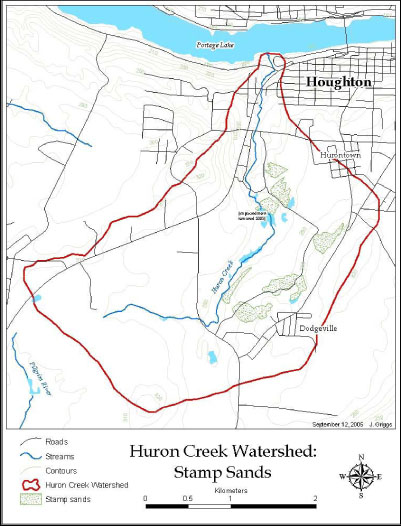One potential source of contamination in the Huron Creek Watershed is that of mine waste, also known as stamp sand. Stamp sand was left behind in the watershed as the result of a century of copper mining operations. Stamp sand was the waste rock left behind after the ore was crushed and the copper removed. Because of the massive amounts of stamp sand produced, it was disposed of whereever there was available space. This meant that large amounts of stamp sand were left in the Huron Creek watershed. While most stamp sand has been covered, removed, or dispersed as a result of construction, there are still visible piles in a few locations. Most of this stamp sand is located around the area that was formerly Huron Lake . While stamp sand was considered to be inert waste by mining companies, it can contain trace amounts of various heavy metals, which--under specific circumstances--could pose a threat to the creek’s water quality. There is no evidence that contaminants are currently reaching the creek.
| The approximate location of stamp sand piles left behind after the mining era are shown in the shaded areas. |  |